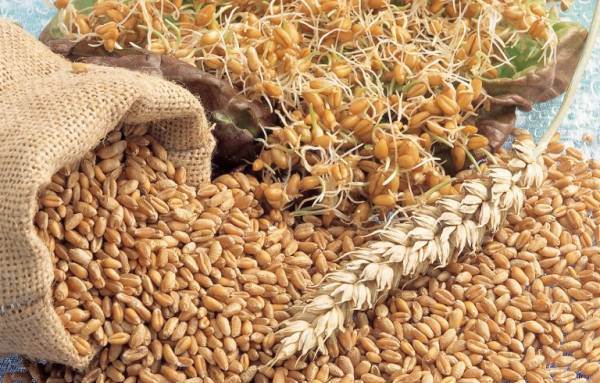Turkey bans almost entire list of Russian agricultural imports

By Kamila Aliyeva
Turkey has officially sent the information on duties on Russian goods to the Russian Agriculture Ministry, Vesti.ru reported referring to local media.
Thus, Russia was removed from a duty-free import program for agricultural products.
Turkish importers and processors could carry out duty-free import of Russian products to Turkey on the basis of issued licenses for import of agricultural products in the "internal processing" mode.
Now, a 130-percent duty is in effect on such Russian exports as wheat and corn, rice – 45 percent, sunflower oil – 36 percent, sunflower meal - 13.5 percent, and more than 9.5 percent - for legumes.
The Federal Center for Evaluating the Quality and Security of Grain reported that, from the beginning of the previous season through March 20, Russia exported to Turkey 31.7 million tons of grain and products for grain processing, 2.1 million tons of wheat (46.6 percent of all Russian wheat exports) and 431,400 tons of corn (9.4 percent of all Russian corn exports). Of the total amount of Russian sunflower oil exports this season (1.1 million tons), 370,000 tons went to Turkey, reported the Institute of the Agrarian Market.
Perhaps, Russian sunflower and legumes will still be exported to Turkey, but obviously supplies will be much less profitable, said Dmitry Vostrikov, director of development of the association of manufacturers and suppliers of food products "Rusprodsoyuz" in an interview with Izvestia.
Now Russia exports wheat to more than 80 countries, according to the Russian Agriculture Ministry.
"To date, significant efforts by the Ministry of Agriculture and the Rosselkhoznadzor are aimed at increasing grain exports, expanding the list of exported grain crops to traditional importers of North Africa and the Middle East, as well as promoting domestic grain to new promising markets in Asia-Pacific region, Latin America and the countries of Caribbean, Africa," the ministry added.
The Turkish government didn’t comment, but the country’s export associations say Ankara's actions are a response to Moscow’s failure to lift restrictions on Turkish agricultural products sold to Russia. For example, there’s still a ban on tomato imports to Russia, 60 percent of which previously came from Turkey.
"We neither accept nor deny the attempts to pressure Russia in order to give Turkish agricultural products access to the Russian market in those sensitive areas where in the last years Russian production has been developing," said Russian Agricultural Minister Alexander Tkachev on March 22, rbth.com reported.
Previously, Russian presidential press secretary Dmitry Peskov said that duties imposed on Russian wheat and corn by Turkey will not affect the normalization process of bilateral relations.
Food imports from Turkey were blocked in response to the downing
of a Russian jet in Syria in late 2015. There were other
restrictions, including the cancellation of charter flights to
Turkey, the introduction of a visa regime, and a ban on hiring
Turkish citizens. Russian travel agencies suspended sales of
package tours to the country.
Moscow-Ankara relations began to improve after Turkish President
Recep Tayyip Erdogan apologized over the jet incident.
Russia lifted the flight ban, but the food ban has
remained.
Russia earlier announced that it will keep the ban on Turkish
frozen meat and poultry as well as tomatoes, cucumbers, grapes,
apples, pears, strawberries and other fruit and vegetables.
In March, Rosselkhoznadzor lifted the restrictions against Turkish
onions, cauliflower, broccoli and some other vegetables, explaining
there is a lack of these food items in Russia.
--
Kamila Aliyeva is AzerNews’ staff journalist, follow her on Twitter: @Kami_Aliyeva
Follow us on Twitter @AzerNewsAz
Here we are to serve you with news right now. It does not cost much, but worth your attention.
Choose to support open, independent, quality journalism and subscribe on a monthly basis.
By subscribing to our online newspaper, you can have full digital access to all news, analysis, and much more.
You can also follow AzerNEWS on Twitter @AzerNewsAz or Facebook @AzerNewsNewspaper
Thank you!
